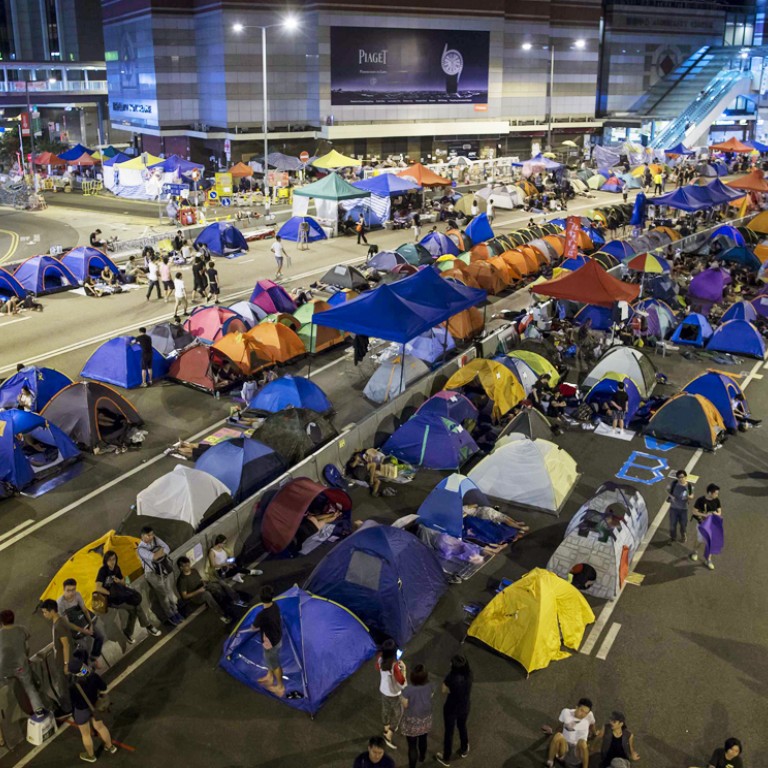
The public have spoken - they want the Occupy protest to end
As the Occupy Central impasse drags on, those behind the civil disobedience movement find themselves under growing pressure to review their strategy.
As the Occupy Central impasse drags on, those behind the civil disobedience movement find themselves under growing pressure to review their strategy. The ideas being considered are anything but constructive, ranging from the chief executive dissolving the legislature to pan-democratic lawmakers resigning to trigger a "referendum" in the form of by-elections.
The suggestions are nothing new. The first comes from Basic Law Article 50, which says the city's leader can disband Legco when the government budget or important bills are vetoed. The second was carried out in 2010 by five pan-democrats, who resigned en masse to force city-wide polling the lawmakers intended to be a vote on democracy.
That the government has wasted no time in dismissing the ideas is hardly surprising. Article 50 is not a step to be taken lightly. A similar situation emerged nine years ago when the legislature voted down electoral reforms for 2007 tabled by Donald Tsang Yam-kuen when he was chief executive. But Tsang did not resort to such an extreme step. More importantly, dissolving Legco will not necessarily break the deadlock. It is believed that even if 2017 electoral reforms are vetoed in Legco, Beijing will not yield to pressure and modify the framework. Should pan-democrats continue to hold veto power in the new Legco, the chance of a breakthrough would be just as bleak.
Equally ill-conceived is the resignation plan. Occupy Central organisers already held an unofficial city-wide vote in June, in which 800,000 people expressed their aspirations for genuine universal suffrage. If the ballot and weeks of street protests failed to force any changes, what would another ballot achieve?
Although student leaders believe a referendum is a good way to sustain the campaign's momentum, pan-democrat lawmakers are not so sure. If the 2010 experience is any reference, it does not bode well in terms of the public's response - turnout was a record low 17 per cent. In the end, the five lawmakers did nothing more than waste HK$150 million to regain the seats they had given up. Even if the students can convince lawmakers to take up the baton, there is also no guarantee that protesters will retreat.
People's patience is running out as the campaign enters its 39th day. A recent survey showed that 73 per cent of the public think it's time to end the occupation. The protesters should heed the call and free our streets.

